The moments that won Chris Froome the 2016 Tour de France
We look back at the key points from the 2016 Tour de France that won it for Chris Froome

Alberto Contador’s crash
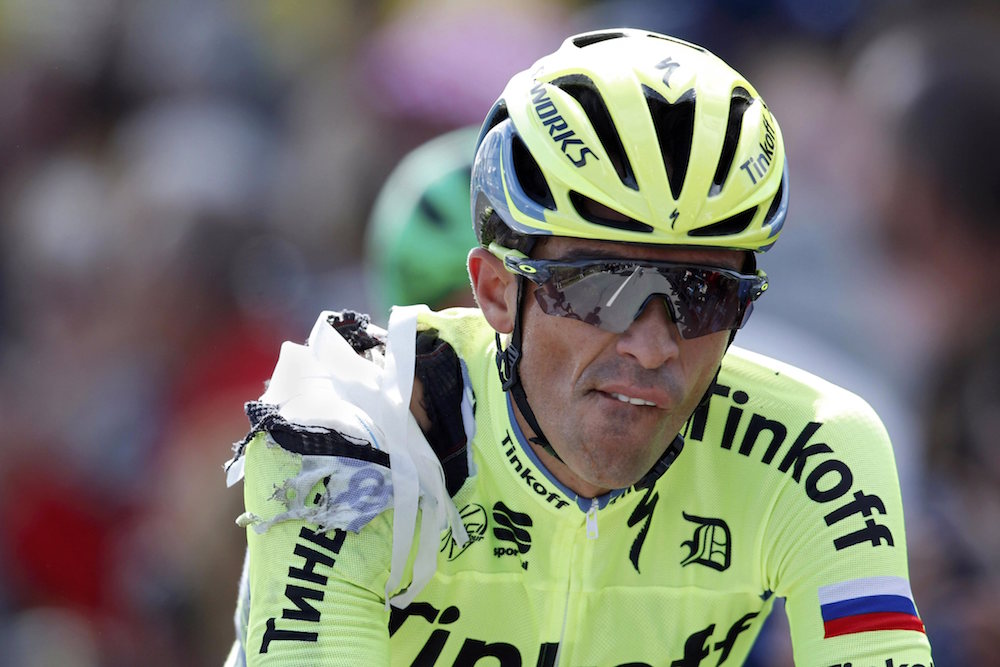
The panic and tension of the Tour de France’s first week always claims victims, and among them this year was Alberto Contador (Tinkoff), who crashed as early as stage two and abandoned seven days later having haemorrhaged time all week.
Heading into the race he was the bookies’ third favourite for the overall, and it was widely thought that his mixture of climbing and tactical nous made him one of the few riders capable of beating Chris Froome.
We’ll never know the extent to which Contador could indeed have challenged yellow jersey, but there’s no doubt his absence made Froome’s road to victory a lot more straightforward.
The downhill attack
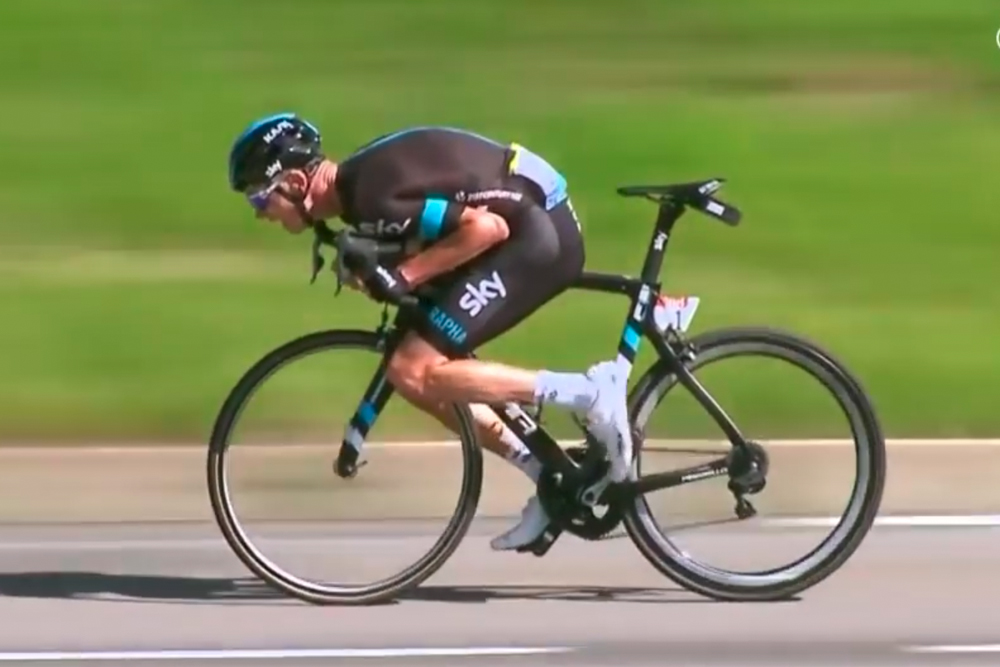
A small gain from an unusual descending technique helped Chris Froome win stage 8 of the 2016 Tour de France
Everyone expected Froome to make an attack when the race hit the mountains - only we assumed he’d do so on one of the ascents rather than a descent.
He caught everyone off guard when he blazed off the front of the peloton on the descent of the Peyresourde on stage eight, holding off the chasing pack to win both the stage and move into the overall lead.
>>> Why Chris Froome’s unusual descending style isn’t as fast as it looks
The 23 seconds he gained might not have been an awful lot in the grand scheme of things, but the psychological blow was crucial - not only were all of Froome’s rivals now faced with the deflating sight of Froome already in yellow, he’d also turned a potential weakness - descending - into an area in which he gained time.
Get The Leadout Newsletter
The latest race content, interviews, features, reviews and expert buying guides, direct to your inbox!
The crosswind attack
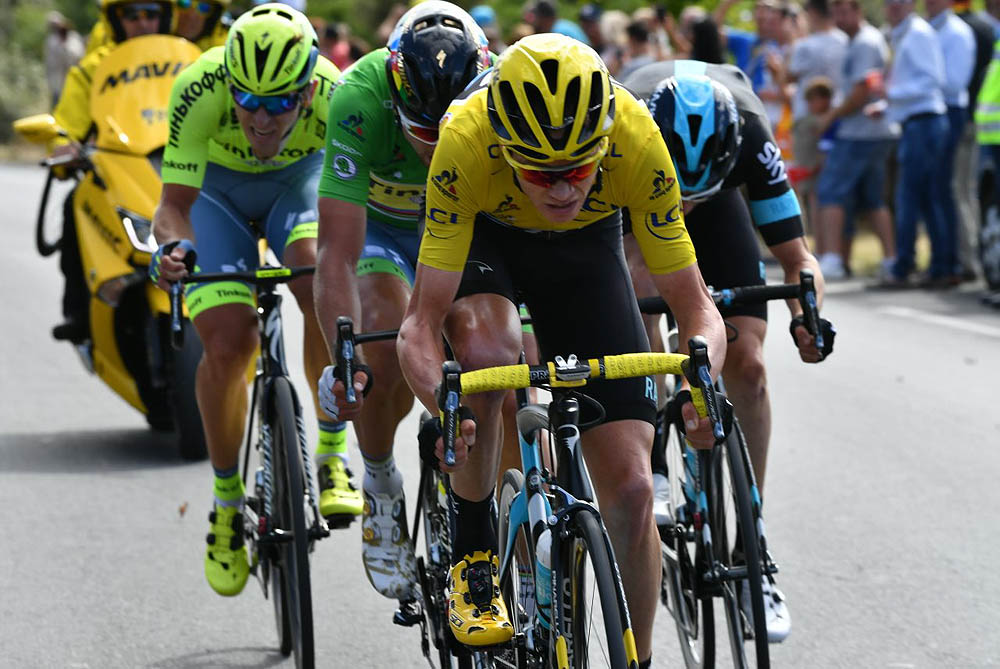
Froome and Team Sky are known for how masterfully they can defend a race lead, but he spent much of the earlier part of the race out on the attack.
On stage 11 he responded to an attack from Peter Sagan (Tinkoff) in conditions of vicious crosswinds, and gained another twelve seconds overall all his rivals, none of whom responded to his attack.
When Froome won the Tour in 2013, one of the few occasions he looked under pressure was the stage to Saint-Amand-Montrond, when he was caught on the wrong side of a split in another severely crosswind-affected day.
This time, by contrast, he demonstrated how he had learnt from previous mistakes, and turned what were once vulnerabilities into strengths.
The commissaires rule in Froome’s favour
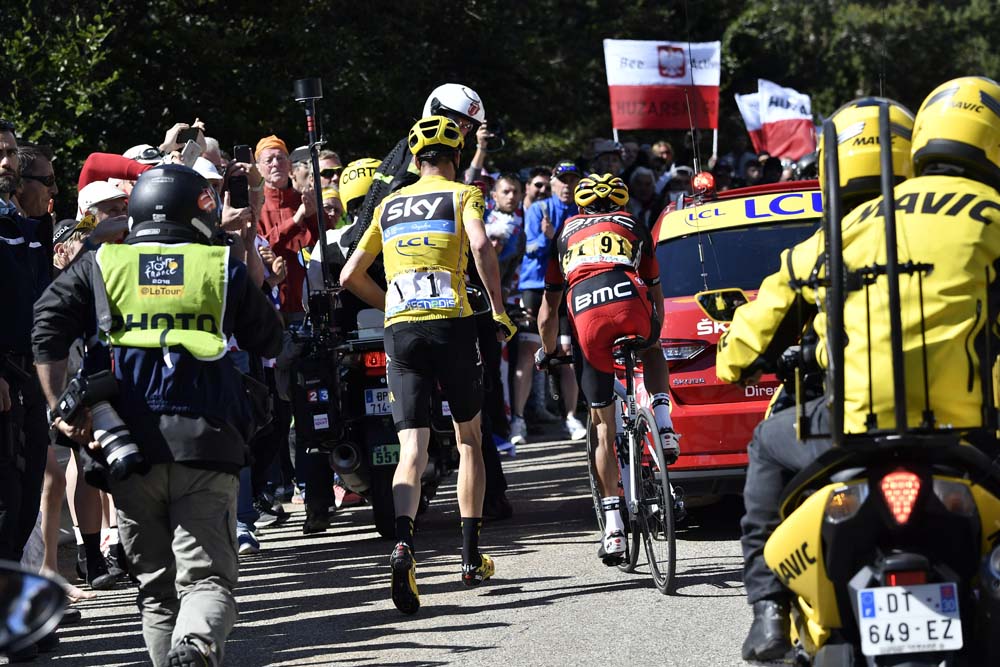
It always felt as though it would take something extraordinary to prevent Froome from winning this Tour. Something extraordinary did indeed occur on stage 12 when the yellow jersey, having been sent flying by the sudden braking of TV moto, resorted to running up the final climb.
He did eventually get hold of a bike, but had already lost enough time to slip to sixth overall - at least before the commissaires stepped in to give him the same time as Bauke Mollema (Trek-Segafredo), who had also fallen in the same incident but managed to remount his bike
Had that result stood it could have swung the whole dynamic of the Tour, putting Froome in a position where he had to gain time again to reclaim the yellow jersey, and potentially disrupting his confidence and racing mentality.
The sight of Froome in the yellow jersey running up the Chalet Reynard is likely to be the defining image of this race, but the commissaires ensured that the incident ultimately had no real impact on how the race took shape.
Extends lead in the individual time trial
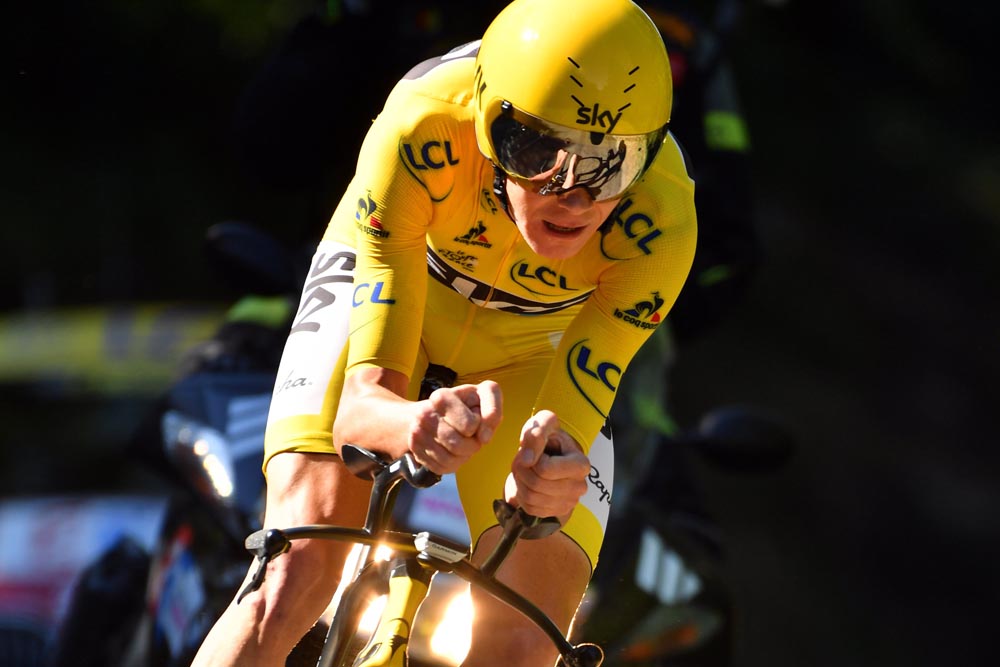
His attacks on descents and in the crosswinds may have been more dramatic, but the stage where Froome gained the most time over his rivals and put them all well out of sight was the individual time trial.
Going into stage 13’s race against the clock, he had 56 seconds on Mollema, 47 seconds on Adam Yates (Orica-BikeExchange) and 54 seconds on Nairo Quintana (Movistar). By the end of it, he had, respectively, 1-47, 2-45 and 2-59.
Gaps that had seemed fairly small now looked insurmountable, and from this point his nearest rivals became far more preoccupied with looking behind them rather than thinking of ways to dethrone the yellow jersey.
Quintana’s attack fails
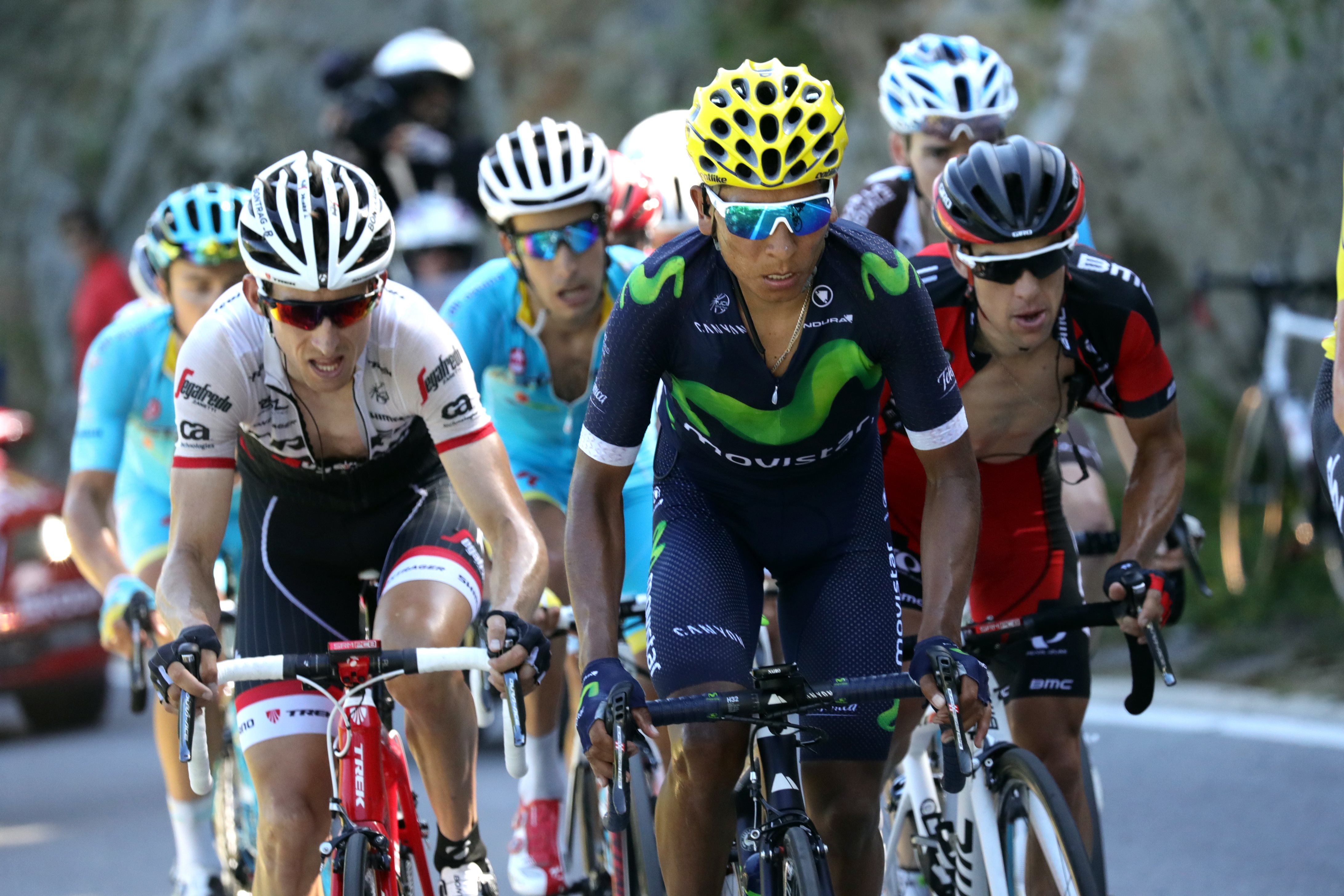
The only man identified as potentially capable of giving Froome a hard time in the Alps was Quintana. In previous Tours he has lost time early on only to dominate the last few mountains stages of the final week, including managing to drop Froome.
Up until stage 17 this year he had ridden a very defensive race, and observers were unsure whether his lack of attacks were down to a deficiency in form, or whether he was simply biding his time.
They were given an answer on stage 17, when Quintana put in attack on the finishing climb of Finhaut Emosson only to fail to drop Froome, and then was spat out of the back of the group of favourites. It was clear from this point that Quintana was not going to challenge Froome.
Wins the mountain time trial
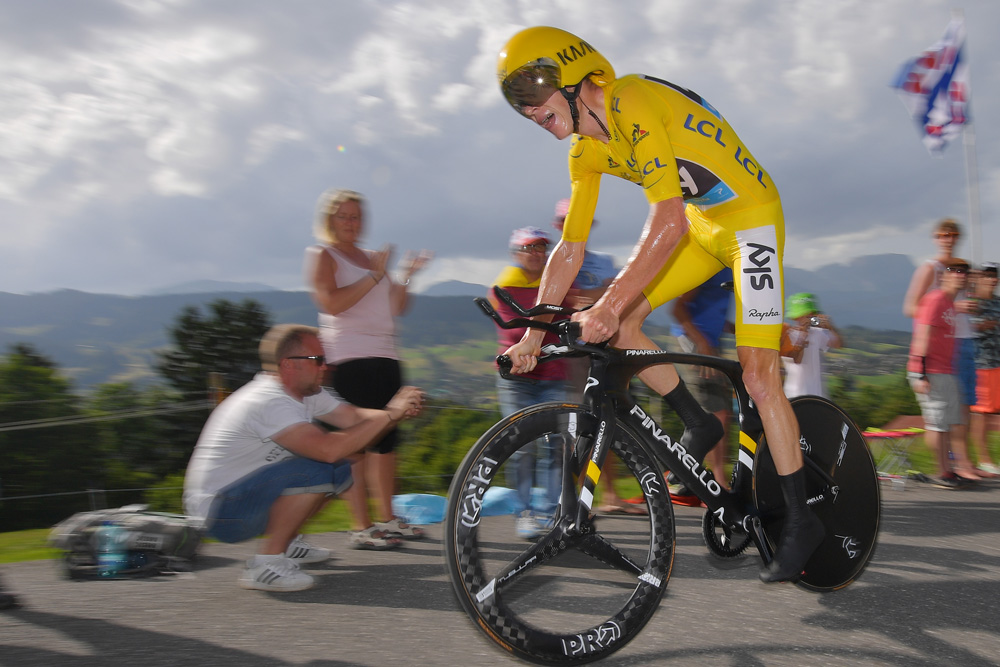
By stage 18 of the Tour, Froome had dominated in the mountains and he had dominated in the time trial - now it was time to dominate in a mountain time-trial.
In truth the Tour already felt basically over before the start of the stage, with Froome already possessing a lead of 2-27 over his closest rival Mollema.
But he made absolutely sure on the ascent of the Cote de Domancy, winning the stage and obliterating all of his rivals.
By the end of the stage his lead over second-place Mollema had grown to 3-52. From here, the rest of the race felt like something of a procession.

Thank you for reading 20 articles this month* Join now for unlimited access
Enjoy your first month for just £1 / $1 / €1
*Read 5 free articles per month without a subscription

Join now for unlimited access
Try first month for just £1 / $1 / €1
Stephen Puddicombe is a freelance journalist for Cycling Weekly, who regularly contributes to our World Tour racing coverage with race reports, news stories, interviews and features. Outside of cycling, he also enjoys writing about film and TV - but you won't find much of that content embedded into his CW articles.
-
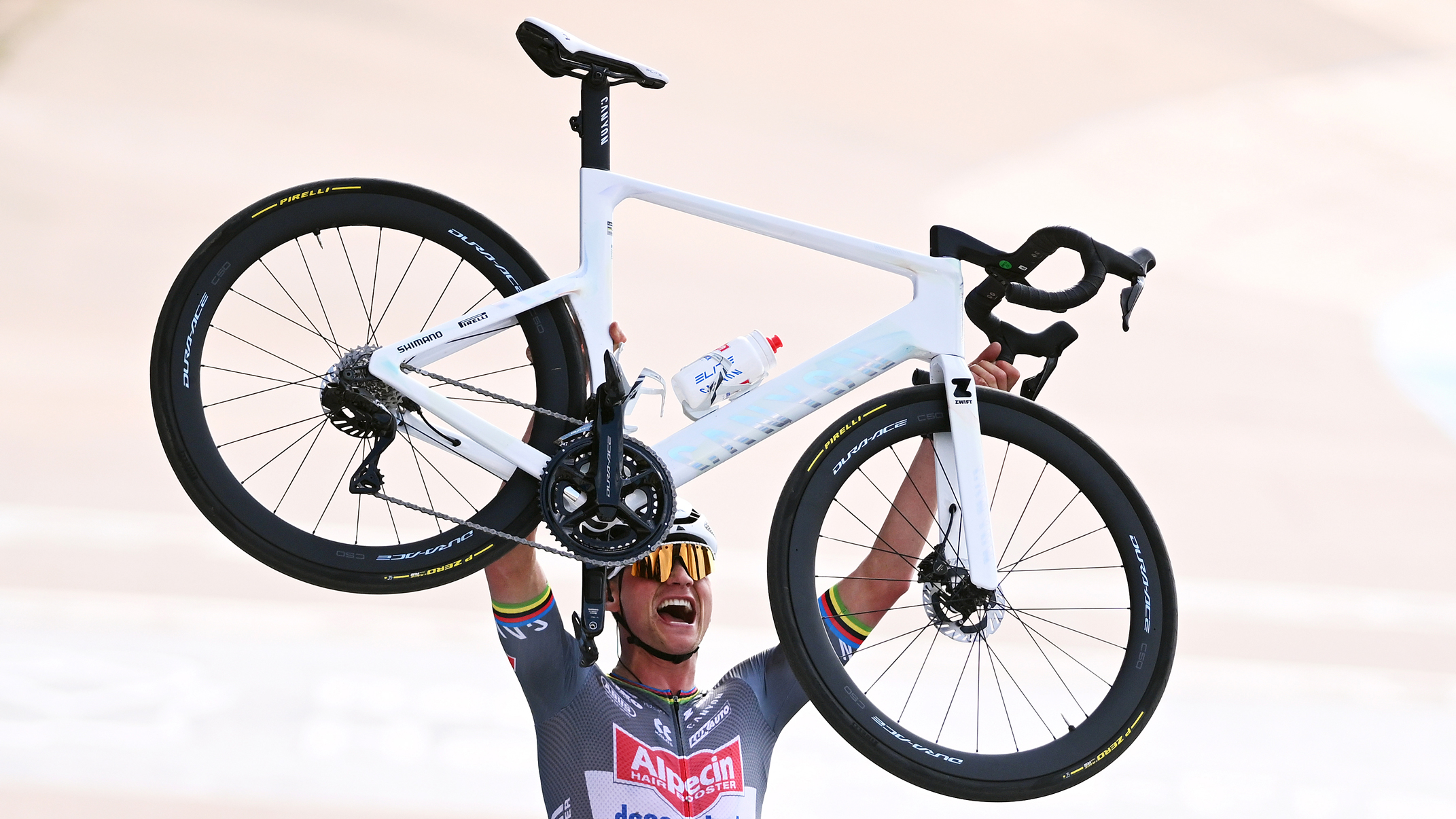 Save £42 on the same tyres that Mathieu Van de Poel won Paris-Roubaix on, this Easter weekend
Save £42 on the same tyres that Mathieu Van de Poel won Paris-Roubaix on, this Easter weekendDeals Its rare that Pirelli P-Zero Race TLR RS can be found on sale, and certainly not with a whopping 25% discount, grab a pair this weekend before they go...
By Matt Ischt-Barnard
-
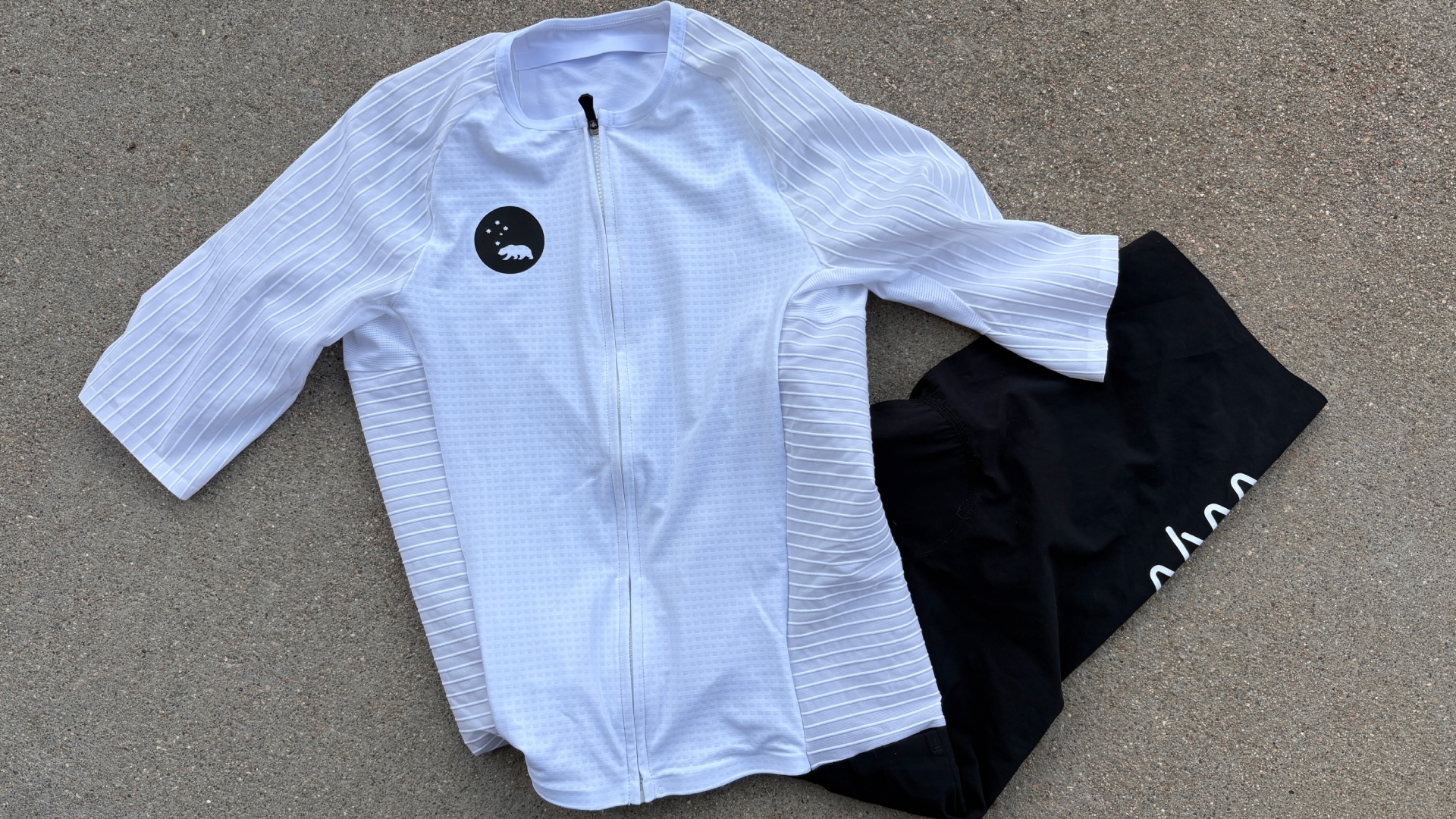 "Like a second skin” - the WYN Republic CdA triathlon suit reviewed
"Like a second skin” - the WYN Republic CdA triathlon suit reviewed$700 is a substantial investment in a Tri Suit, and it is, but you’ll definitely feel fast in it
By Kristin Jenny
-
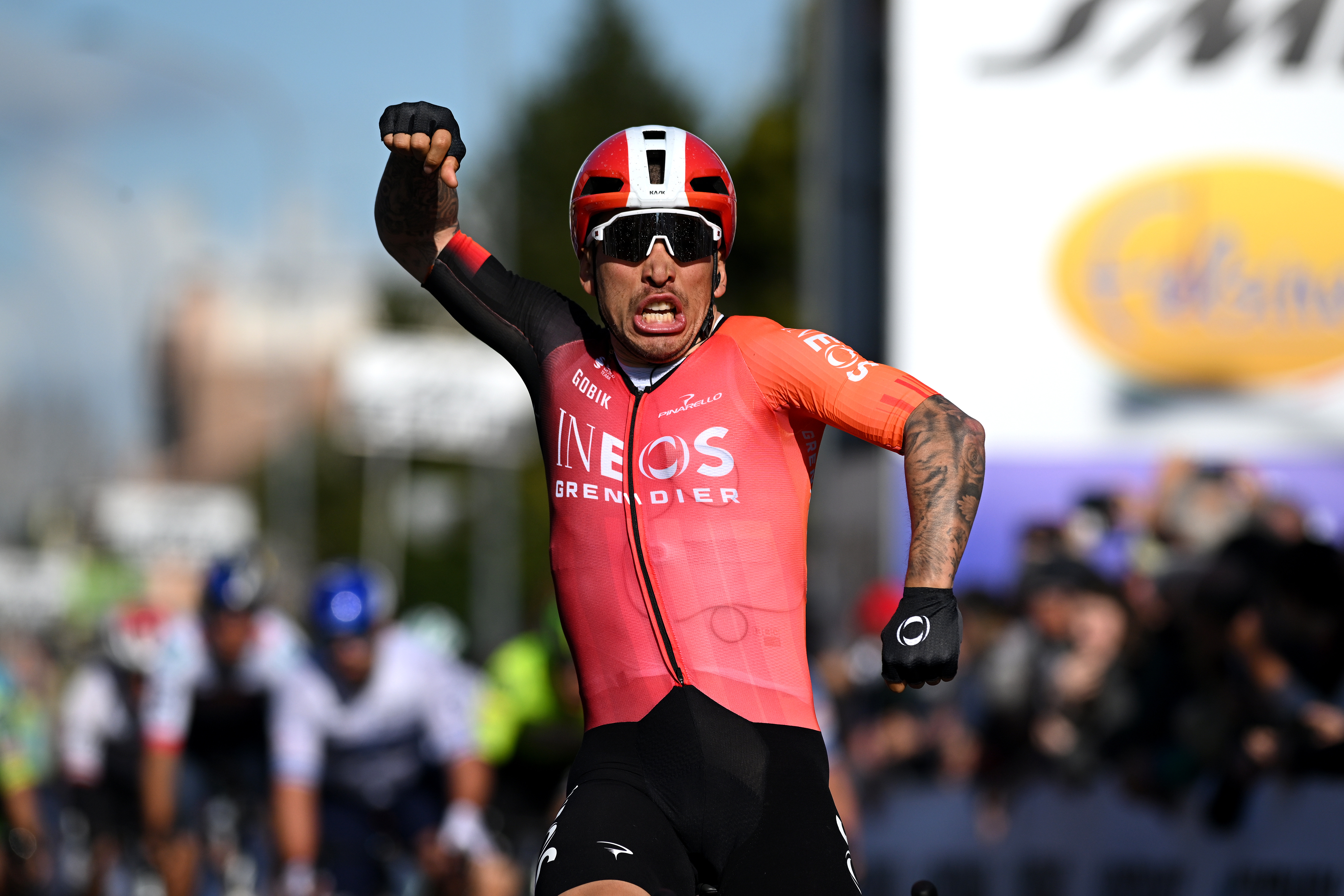 'It can really push me along' - How a velodrome comeback is making Caleb Ewan faster on the road
'It can really push me along' - How a velodrome comeback is making Caleb Ewan faster on the roadAustralian says he'll "definitely" continue track work after rekindling passion
By Tom Davidson
-
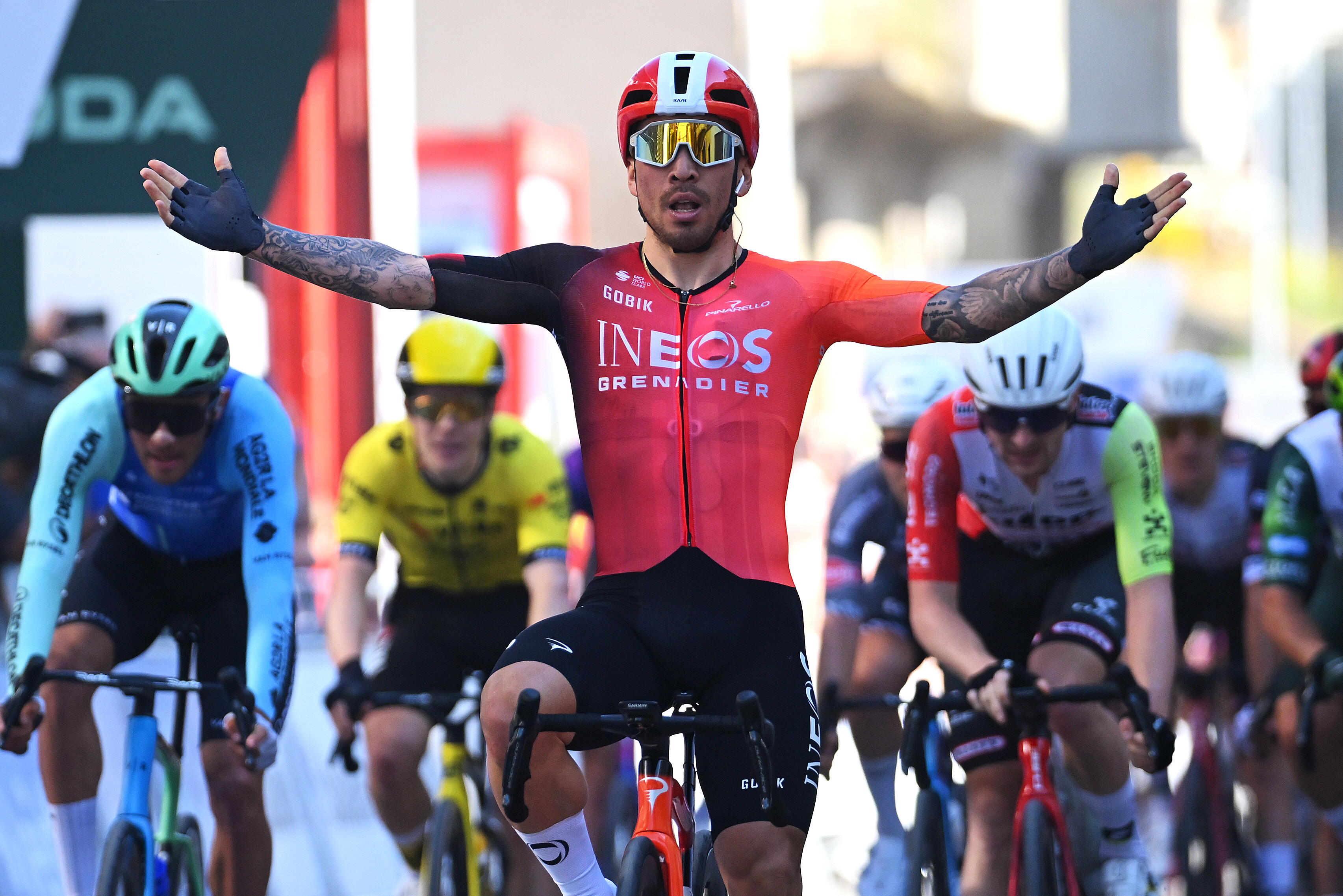 Could Caleb Ewan be Ineos Grenadiers' first Tour de France sprinter since Mark Cavendish? 'That's my goal'
Could Caleb Ewan be Ineos Grenadiers' first Tour de France sprinter since Mark Cavendish? 'That's my goal'"All I can do is try to win as much as possible and prove that I deserve to be there," says Australian
By Tom Davidson
-
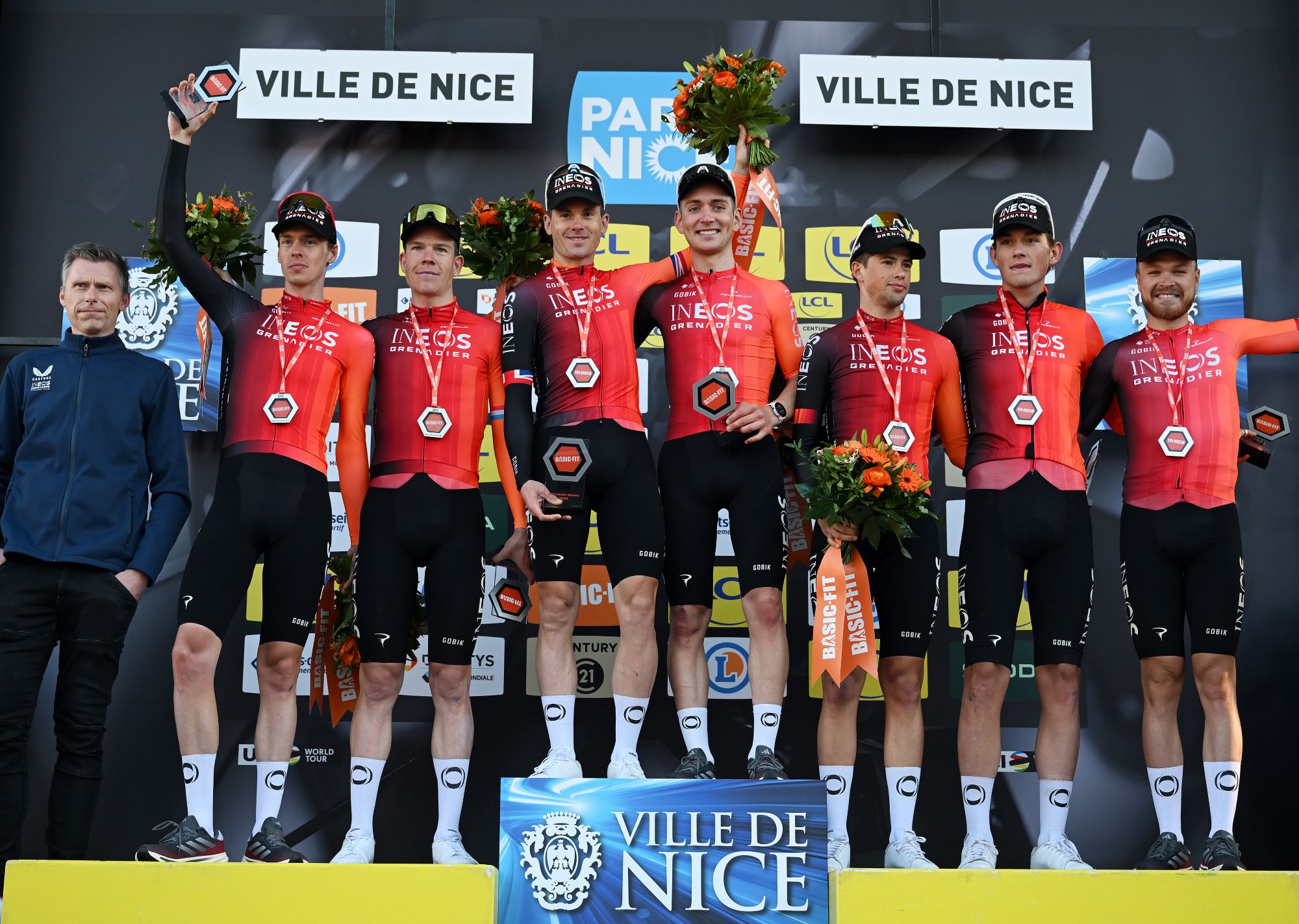 'An unprecedented opportunity for brands to be part of the evolution' - Ineos Grenadiers sponsor hunt steps up with sales agency partnership
'An unprecedented opportunity for brands to be part of the evolution' - Ineos Grenadiers sponsor hunt steps up with sales agency partnershipSportfive have been employed to find "non-endemic global partners for the team"
By Adam Becket
-
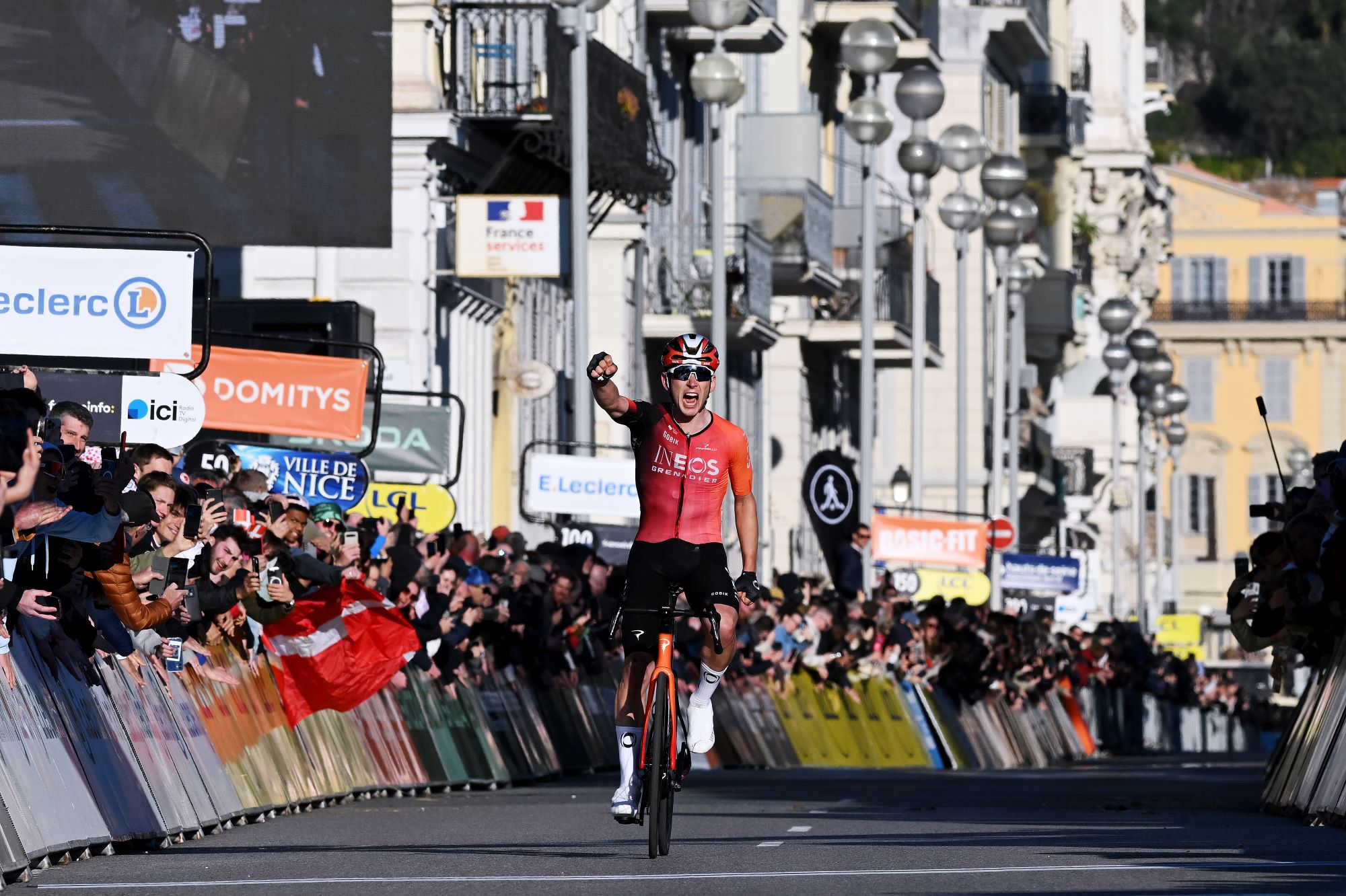 'We've all got a little bit extra in us this year' - Ineos Grenadiers recapture 'fighting spirit' with aggressive Paris-Nice display
'We've all got a little bit extra in us this year' - Ineos Grenadiers recapture 'fighting spirit' with aggressive Paris-Nice displayBritish team continue to put tumultuous 2024 behind them with momentum and a new found mentality
By Tom Thewlis
-
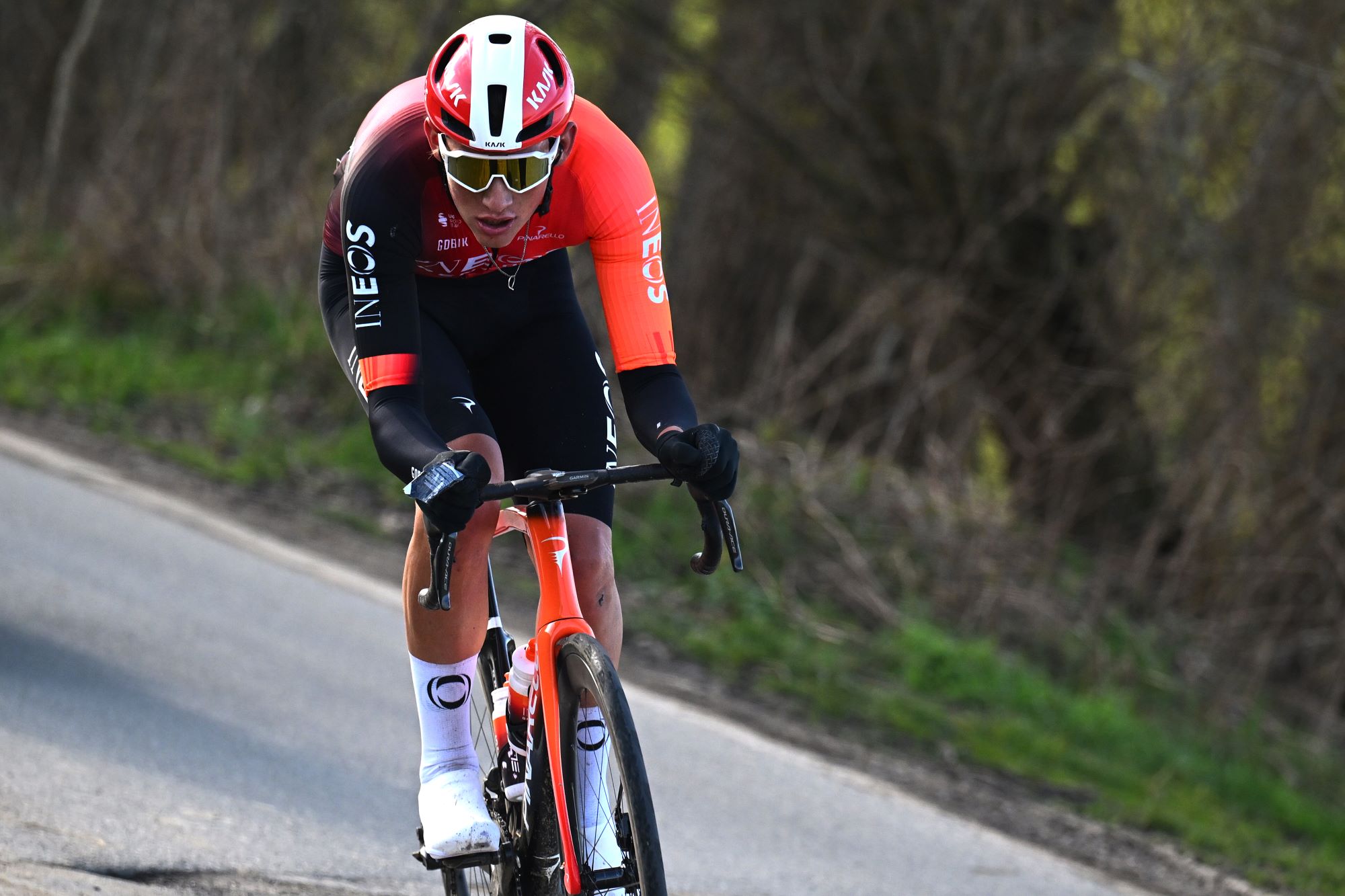 Could a TotalEnergies deal be the end of Ineos Grenadiers as we know them?
Could a TotalEnergies deal be the end of Ineos Grenadiers as we know them?Reports suggested this week that Ineos could be close to signing a deal with the French petrochemical firm
By Tom Thewlis
-
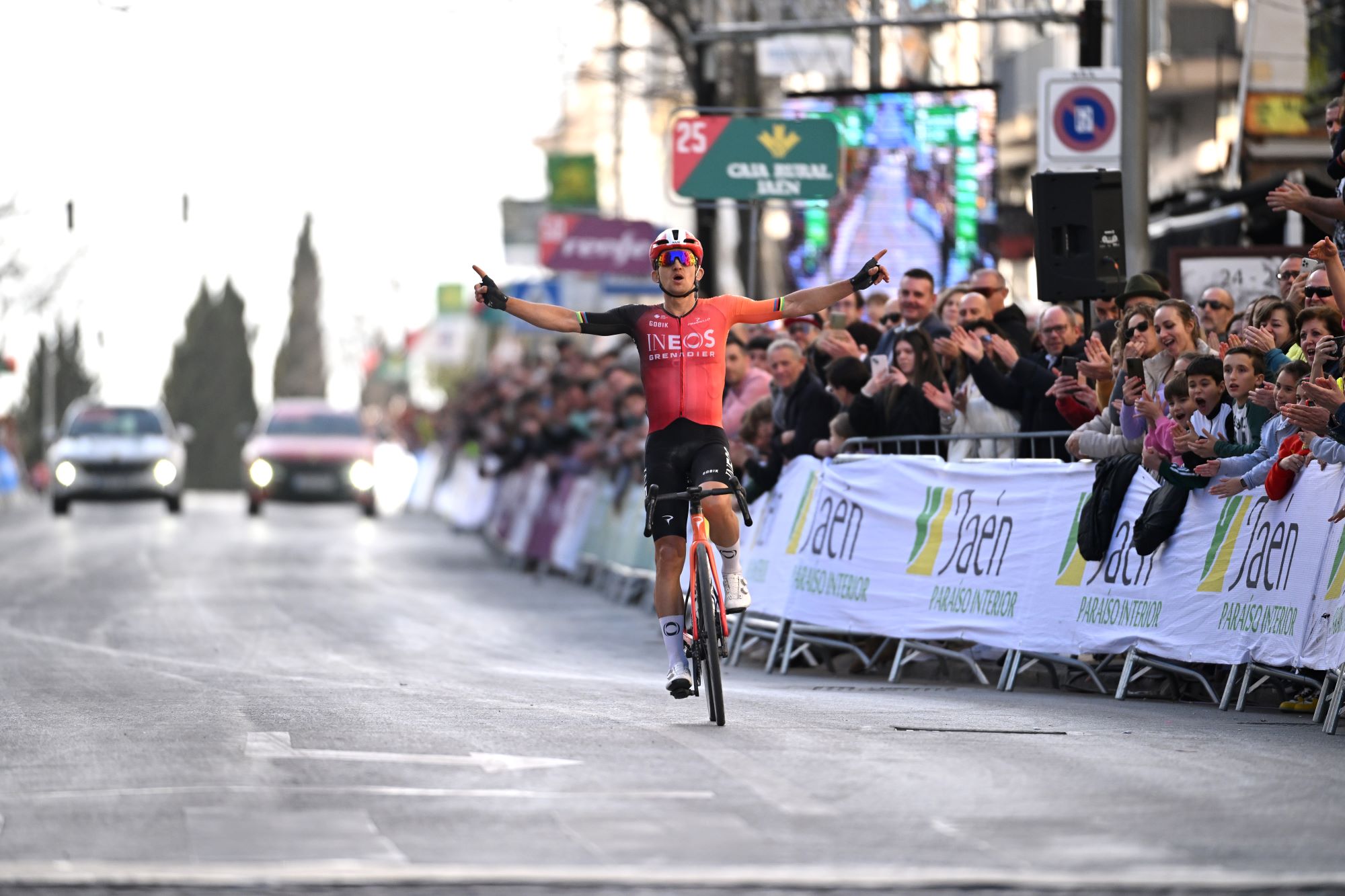 'They’re racing with their hearts again' - Robbie McEwen on Ineos Grenadiers' bright start to 2025
'They’re racing with their hearts again' - Robbie McEwen on Ineos Grenadiers' bright start to 2025The British squad have already won four times in 2025
By Tom Thewlis
-
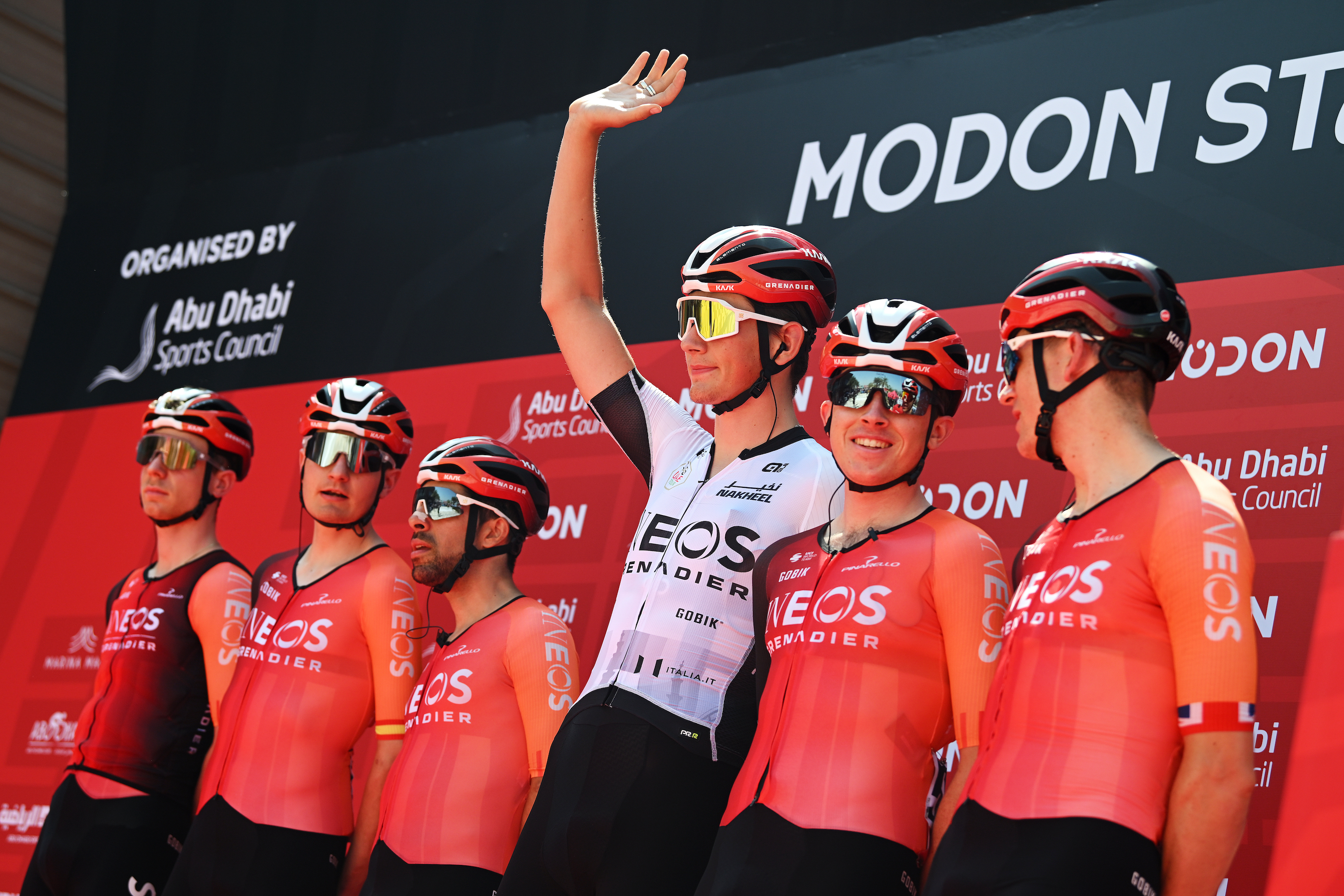 Ineos Grenadiers are entertaining so far this year, but how long will it last?
Ineos Grenadiers are entertaining so far this year, but how long will it last?The British WorldTour squad have won four times already in 2025, but more than that, they have been fun. Is this the new dawn?
By Adam Becket
-
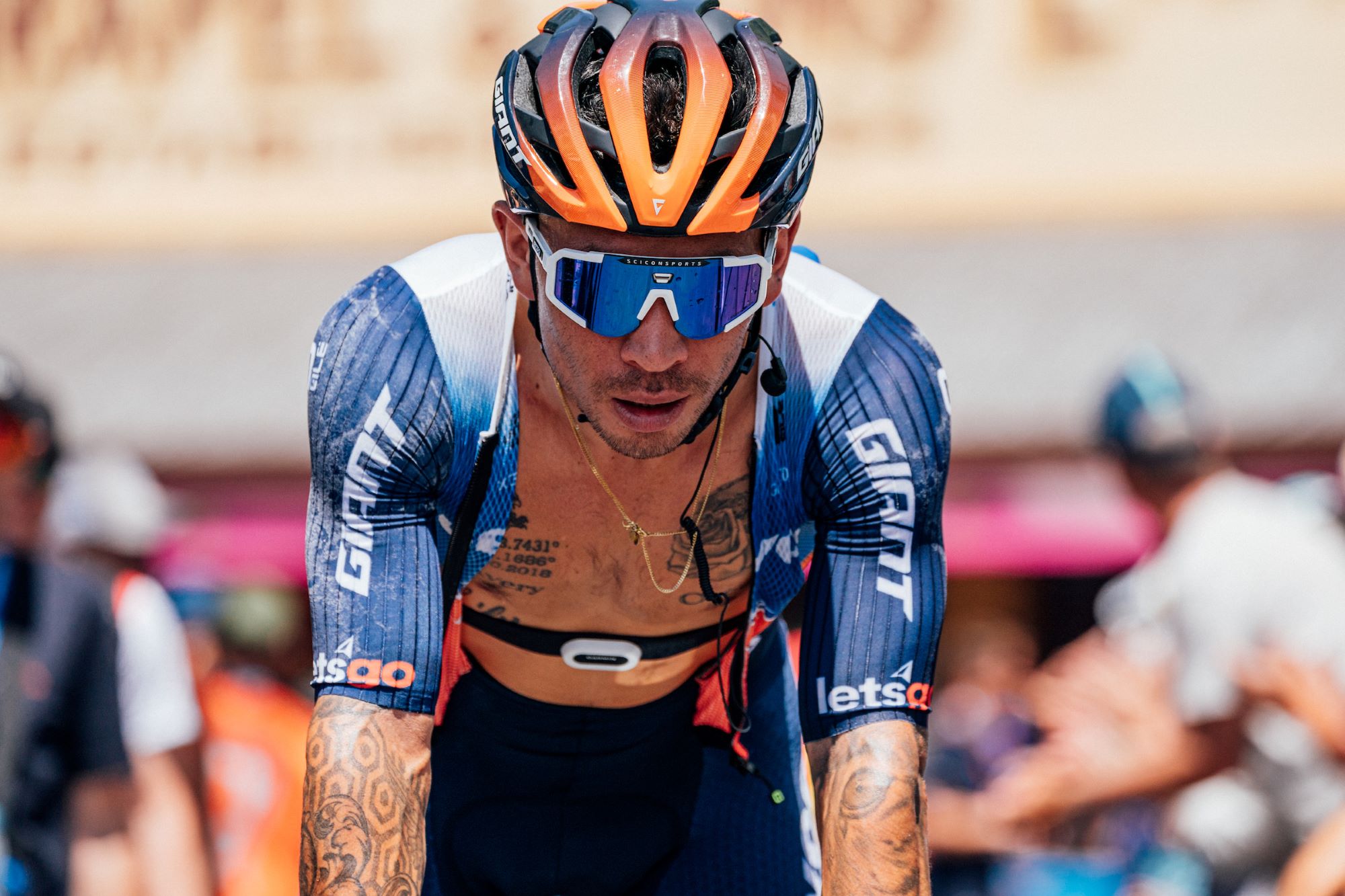 Caleb Ewan says he was put in a 'bad situation' by Jayco AlUla before he joined Ineos Grenadiers
Caleb Ewan says he was put in a 'bad situation' by Jayco AlUla before he joined Ineos GrenadiersEwan joined Ineos Grenadiers in January after spending just one year with Jayco AlUla
By Tom Thewlis